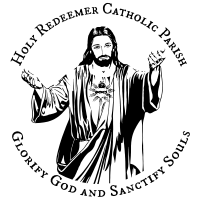The Eucharist, Part 1
Jesus Christ: Yesterday, Today, and Forever ~
A couple of months ago Archbishop Etienne wrote a pastoral letter on the Eucharist; Eucharist is a Greek word meaning “thanksgiving”, as in thanksgiving for what Jesus Christ has done to redeem us. The Archbishop’s pastoral letter was in the Northwest Catholic, the Archdiocesan magazine sent to all registered Catholics in Western Washington. Here is a link to it in case you missed it.
In it, the Archbishop asks us to have a year of the Eucharist, a year in which we re-educate ourselves on the Eucharist and re-devote ourselves to Jesus Christ in it. So, I thought I would run a series of pastor columns on the Eucharist using a little book by Trent Horn at Catholic Answers. In it he answers 20 questions or accusations that people have about the Eucharist.
May God Bless You,
Fr. Thomas Nathe
Trent Horn, 20 Answers – The Eucharist. Catholic Answers Press. 2015
Get your own copy from Catholic.com
Question #1:
What does the Catholic Church teach about the Eucharist?
“The word “Eucharist” comes from the Greek word eucharistein, which means “thanksgiving.” It is the memorial sacrifice of Christ’s body and blood, presented under the form of bread and wine, which is offered to the Father for the forgiveness of sins. After this offering, the Eucharist is consumed, and through this act it transmits sanctifying grace to those who are properly prepared to receive the body and blood of Christ.”
“Like baptism or confession, the Eucharist is a sacrament – an outward expression of an inward reception of grace. The Catechism teaches that “The Eucharist is the efficacious sign and sublime cause of that communion in the divine life and that unity of the People of God by which the Church is kept in being” (CCC 1325). However, the Eucharist differs from the other sacraments in an important way because it ‘is the source and summit of the Christian life.’ The other sacraments, and indeed all ecclesiastical ministries and works of the apostolate, are bound up with the Eucharist and are oriented toward it’ (CCC 1324).”
“For example, the sacrament of baptism initiates us into the Church so that we may receive the Eucharist. The sacrament of reconciliation spiritually heals us so we can receive the Eucharist after receiving absolution for our sins. The anointing of the sick physically and spiritually heals us so we can receive the Eucharist anew, and sometimes it is accompanied by the last Eucharist we will receive before we depart this life (what is called viaticum, which means ‘on a journey’). Lastly, the sacrament of marriage gives spouses the grace to raise families that partake of the Eucharist, and the sacrament of holy orders gives the priests who offer up the Eucharist at Mass.”
“The Catechism goes on to say, ‘For in the blessed Eucharist is contained the whole spiritual good of the Church, namely Christ himself, our Pasch’ (CCC 1324). The word pasch refers to the Jewish celebration of Passover, and it is no coincidence that the Eucharist commemorates the Passover meal Christ held with his disciples before his Crucifixion. But unlike the old Passover, the Eucharist is our new Passover and represents the sacrifice of the ‘Lamb of God, who takes away the sins of the world’ (Jn. 1:29). And just as the lamb of the old Passover was consumed, Christ, the new Passover lamb, must also be consumed. This is why the Eucharist is also called the ‘Lord’s Supper’ or the ‘Breaking of the Bread.’ As the Catechism explains:”
“[It is called] the Lord’s Supper, because of its connection with the supper which the Lord too with his disciples on the eve of his Passion and because it anticipates the wedding feast of the Lamb in the heavenly Jerusalem. [It is called ] the Breaking of the Bread, because Jesus used this rite, part of a Jewish meal when as master of the table he blessed and distributed the bread, above all at the Last Supper. It is by this action that his disciples will recognize him after his Resurrection, and it is this expression that the first Christians will use to designate their Eucharistic assemblies; by doing so they signified that all who eat the one broken bread, Christ, enter into communion with him and form but one body in him (CCC 1329).”
“Finally, the new Passover sacrifice is offered in the context of the Mass. It is called ‘Mass’ because, ‘the liturgy in which the mystery of salvation is accomplished concludes with the sending forth (mission) of the faithful, so that they may fulfill God’s will in their daily lives’ (CCC 1322). Within that context the Eucharist is also called ‘the Holy Sacrifice, because it makes present the one sacrifice of Christ the Savior and includes the Church’s offering. The terms holy sacrifice of the Mass, sacrifice of praise, spiritual sacrifice, and pure and holy sacrifice are also used to describe the Eucharist, since it completes and surpasses all the sacrifices of the Old Covenant’ (CCC 13300).”
Trent Horn,
Catholic Answers Press

